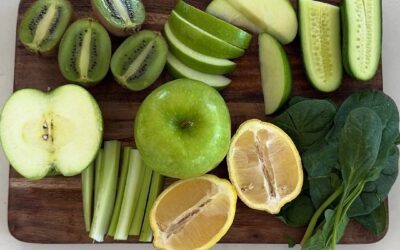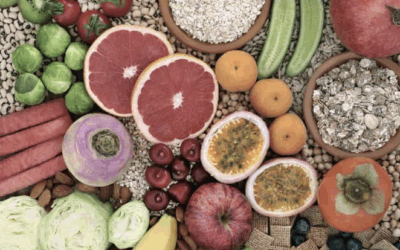If you’re no stranger to the symptoms of itchy watery eyes, sneezing and runny nose or you know what ragweed is, then you might be dreading the upcoming seasonal change. Suppose you’ve already tried all the typical over-the-counter and prescription medications to no avail. In that case, naturopathic medicine may be able to offer you ways to prepare your body for sneezing season.
Naturopathic Medicine and Seasonal Allergies
The root cause of allergy symptoms is histamine, a neurotransmitter mast cells release in response to a perceived allergen. Histamine triggers the allergic symptoms, causing excess mucus production and itchiness. Thankfully, there are many naturopathic ways to reduce and stabilize histamine production.
We have an analogy called a “histamine bucket”. The thought is that when your body’s histamine bucket gets filled up, the body’s capacity to handle histamine is exceeded and symptoms overflow in the form of allergic symptoms like:
- Nasal congestion
- Tunny nose
- Post nasal drip/sore throat
- Sneezing
- Coughing
- Itchy eyes
- Watery eyes
- Red/puffy eyes
- Hives
- Rashes
- Headaches
These symptoms occur when we have more histamine than our body can break down and excrete at any given time.
How Naturopathic Medicine Can Help Manage Histamine
The key is to “empty the bucket” or stop the overflow. Naturopathic medicine does this in several ways:
- Limiting the amount of histamine-producing substances in and around the body.
- Speeding up the excretion of histamine by optimizing detoxification pathways.
There may be underlying root causes of histamine-related symptoms that will also be investigated:
- Undiagnosed food allergies or sensitivities that can keep histamine levels chronically elevated
- Exposure to dust, mold, pollen and other allergens
- Nutrient deficiencies
- Genetic SNPs which many play a role in how your body breaks down histamine
- Gut dysbiosis which can affect histamine tolerance
How to Improve Your Seasonal Allergies Naturally
Stop the Histamine Bucket Overflow
Stop contributing to the bucket by reducing allergens in your daily life. This is known as allergy hygiene. It includes incorporating HEPA air filters into your home to trap pollen, dust, and dander before they can trigger you. Keep windows closed and remove shoes and outerwear first thing as you enter your home. Shower before bed, change bed sheets frequently and wash bed sheets and pillowcases in hot water to kill dust mites when you do laundry.
Reduce Outside Allergen Exposure
Try the following:
- Wear a mask when doing yard work
- Try doing outdoor activities in the evening where possible, when it’s not windy and even while it’s raining to reduce pollen exposure
- Check the pollen count and air quality index in your area before planning outdoor activities
- When you return from the outdoors, shower and change your clothes immediately to remove pollen from your hair and skin
Reduce Dietary Allergen Exposure
Identifying true food allergies, removing them from the diet and then working on the other foundations of health is usually enough to resolve many histamine-related issues. Common triggers include alcohol and fermented foods.
Herbs and Supplements
Supplements like DAO, Butterbur, NAC, Quercetin, Nettle, and Spirulina all have extensive research to support their use in histamine reduction.
Nutrients like copper, vitamin B6 and vitamin C can also support histamine degradation.
Traditional Chinese Medicine Herbal blends have been studied to reduce the severity of allergic rhinitis. It’s best to work with a Naturopathic Doctor or Registered Acupuncturist to get a personalized formula based on your specific symptoms.
Optimize Gut Health and Nutrition
The microbiome has many immune functions that help to regulate our histamine production. Dietary fibre is very important to feed beneficial bacteria in the gut and reduce allergic reactions by regulating immune cell function.
Foods with dietary fibre also commonly have antioxidants as well. Top sources of dietary fibre include lentils, beans, prunes, figs, berries, seeds, broccoli, cauliflower, nuts and potatoes.
Lastly, high dietary intake of Inflammatory fats is linked with an increased risk of allergic symptoms.
Hydrotherapy
A hot shower can help relieve nasal congestion by thinning the mucus via steam inhalation.
You can also add a few drops of essential oils like eucalyptus, tea tree or oregano to boost the antimicrobial and mucus-thinning effects of the steam.
Also, using a net pot to irrigate the nasal passages before bed or after outdoor activities can be helpful.
Acupuncture
In one study of over 400 people, acupuncture treatment helped cut the number of days they had to use antihistamines for allergy symptoms by half. Another study suggested that acupuncture can help reduce nasal congestion symptoms even in those already taking allergy medication.
Several safe and effective naturopathic treatments can help you not only reduce symptoms but treat the underlying cause of your allergies. If you feel like you’re at the end of the line and have tried everything to manage your allergy symptoms, but nothing seems to be working, book a call with one of our qualified Naturopathic Doctors.



